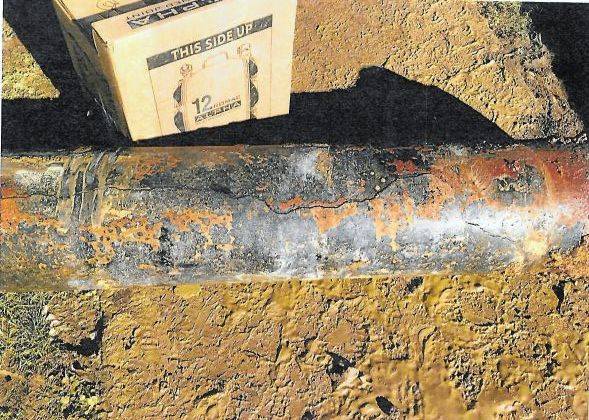
GREENVILLE – Greenville City Council members seemed to agree water and waste water rate increases are needed, but a decision on how much the increase will be has not been made.
In a second work session to discuss the issue, several council members were prepared with questions for Gary Evans, water department superintendent. Evans shared the thoughts of his operators and emphasized the comment of one individual, “You need to look at Flint, Mich. and see what happened there when a town wanted to have lower water rates. There is a price to pay for being cheap.”
At issue for council is deciding if it wants to double or triple rates for water or come up with another solution to replace aging water lines, some of which date back to the 1890’s. The water department also wants to increase its amount of available storage to at least 24-hours, which would mean adding a new water tower and eventually replacing older towers. Evans believes the water plant will need to be replaced in 20 to 30 years and Greenville should begin saving for that large expense now.
In 2018, the state enacted a law that requires water departments throughout the state to have an Asset Management Plan. Ultimately, this means the city needs to show it has a plan to pay for projects. Evans noted the plan could be to borrow the money to pay for failures, but the city would need to show it could pay back the money. If the money isn’t available, the state could come in and set the city’s water rates.
Councilmen Clarence Godwin and Matt Staugler asked Evans and Safety Service Director Curt Garrison to come up with a year-to-year plan on the upgrades that are needed and which projects would be accomplished in certain years. Staugler also asked that the plan to replace water lines be done in conjunction with street replacement projects.
Godwin and Councilman Leon Rogers also were hesitant to approve a large increase at one time. Godwin asked if it would be possible to a 50 percent increase in subsequent years until they get to where they need to be and then institute a smaller year increase to keep up with the rate of inflation. Rogers pushed to keep the minimum at 10 units and double the rates rather than lower the minimum units to five. He believes this would help seniors on a fixed income.
With the current proposal, Greenville will go from ninth from the bottom in water rates to second highest in the Miami Valley. Evans shared that because of the Asset Management Plan requirement, more communities will have to implement rate increases.
The goal for the water department is to go from a little over $2 million a year to $6 million a year in revenue. With the additional revenue the department would be able to save towards a new water treatment plant, spend $1.25 million on distribution replacement and approximately $15 million or more on additional treatment to protect the city water supply from contaminates. Greenville is one of a few water systems in the state that must treat for Cryoptosporidium because of consistent findings of the contaminate in the water supply.
Council members had few questions for Don Knife, waste water superintendent and his request for a 50 percent increase and a five percent yearly increase.
Council also discussed the proposed sidewalk project. The city needs to approve a Resolution of Necessity in order to assess the taxes of property owners. Garrison set forth a timeline for the projects. Residents in the first phase would be required to finish their projects by Nov. 30, 2020. In the spring of 2021, the city would determine the sidewalks that have not been completed and would ask for bids to complete the remaining projects by August 2021. Residents would be given from Aug. 1 to 31 to pay their project in full. Projects not paid would be sent to the county auditor for assessments to begin in 2022. An interest rate could also be attached to the assessment. Greenville city’s auditor suggested the assessment be no longer than five years.
Garrison suggested there are ways to reduce the cost to residents. The city could hire a company to shave as much as two-inches of concrete in areas where two slabs are not level. The cost to residents would be significantly different from replacing and entire slab of concrete.
By using the concrete shaving method, the city would also lessen the requirement to remove trees. However, if the upheaval of the concrete slab continues and there is nothing left to shave, the resident would need to remove the tree.
Councilman Doug Schmidt expressed hesitation in continuing with the sidewalk project due to the proposed increase in water and waste water rates.
Council asked the administration to look into hardship grants for residents that may have difficulty in paying for sidewalk repairs.
Council President John Burkett said, “This is not going to be an easy decision and we have not made it by flying by the seat of our pants. We’ve had a lot of discussion on it. It is something that has to be looked at by this council.”





